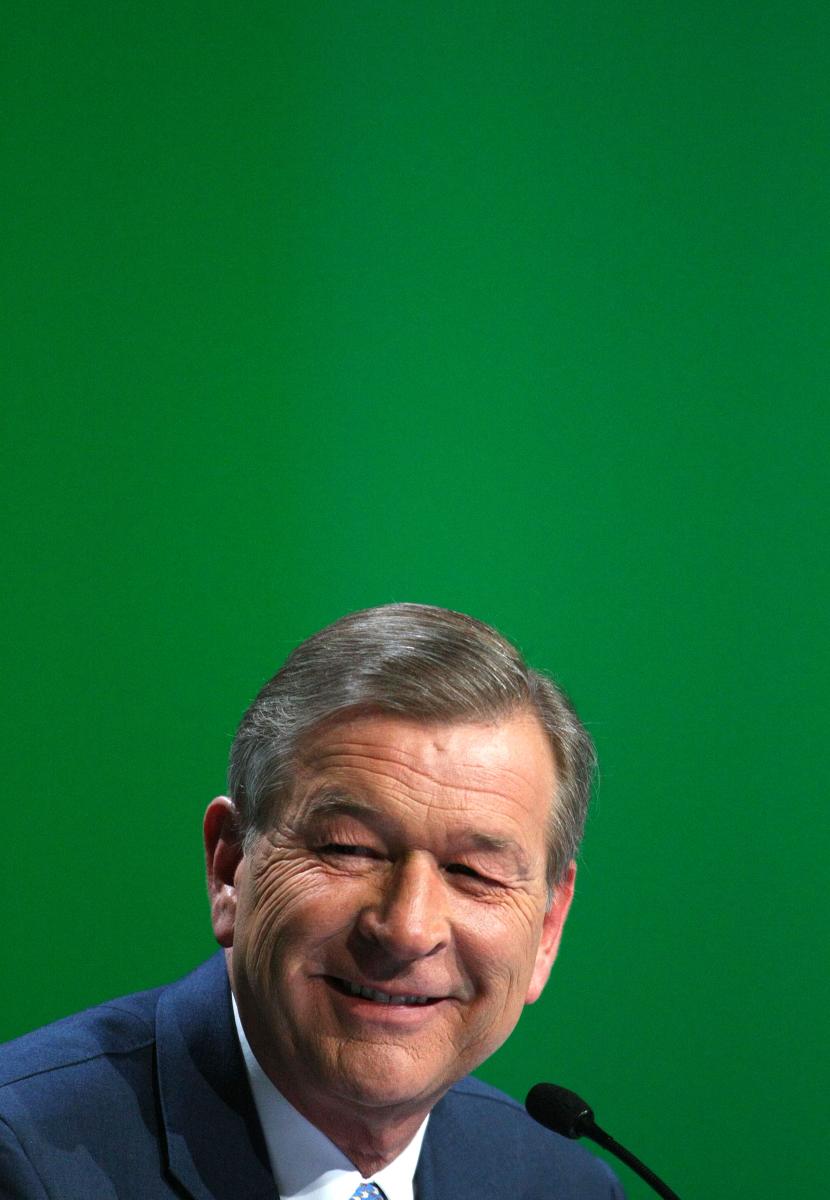
Ex-UBS chiefs dodge legal action – for now

Former UBS bosses are unlikely to be sued for their part in the bank’s calamities in 2008 and 2009, but could still face future lawsuits for decisions taken in 2007.
No shareholders had come forward to claim damages against ex-UBS chairman Marcel Ospel and other managers in time for the first deadline on Thursday. UBS itself has defended its decision not to launch legal proceedings.
UBS endured a dramatic fall from grace during the financial crisis and was the worst hit European bank, writing down more than SFr50 billion ($53 billion). Share prices plunged from a high of SFr75 to SFr8 in two years as the bank also fell foul of a United States tax evasion probe.
In December of last year, UBS said it would not be pursuing legal action against former or current board members and executives. The bank complied with an order by the Swiss authorities to explain this decision by producing a “transparency report” on Thursday.
Shareholders had already displayed their disapproval of the bank’s management at the annual general meeting in April. Despite discharging UBS bosses for their actions in 2008 and 2009, shareholders refused to exonerate management for the year 2007.
No early warning
Under Swiss law, shareholders had six months to file law suits for the period 2008-9, a deadline that expires on Thursday. But the AGM vote also allowed a five-year legal window to claim damages for 2007 management decisions.
The main bone of contention is the allegation that UBS bosses failed to inform shareholders of the bank’s problems early enough.
Bringing such complicated and expensive legal actions in Switzerland would require the backing of large institutional shareholders, such as pension funds. But none have so far been willing to take UBS managers to court.
Swiss-based action group Actares, that represents small UBS shareholders, said it could not fight the battle with only around 100 individuals willing to go to court.
“We have to accept that a large proportion of shareholders at the AGM did not consider the executive’s actions of 2008 and 2009 to be so bad,” spokesman Roby Tschopp told swissinfo.ch. “It is clear that we will not be able to do anything for these years, but we still suspect that the worst management practices took place in 2007.”
UBS defence
Tschopp added that he was “surprised” that large disgruntled institutional groups have not so far come out of the woodwork.
But he believes that some institutions could still be persuaded to bring action against 2007 UBS management actions after they had digested the bank’s “transparency” report, and the subsequent reaction of the Swiss authorities.
Despite coming under increasing pressure from politicians, shareholders and the Swiss public to sue former managers, UBS continued to defend its position not to do so in its report.
The report said such action would probably prove expensive with no guarantee of success, it would attract adverse publicity and could distract the bank from its present strategy.
UBS chairman Kaspar Villiger also said that it could weaken the bank’s defences against potential future legal actions, specifically in the US.
“Whenever a bank pursues litigation against its own bodies this is viewed by US lawyers as an admission of guilt,” he told a press conference in Zurich on Thursday. “This could weaken our position in relation to future lawsuits and even result in higher damages.”
Revenge not so sweet
Zurich legal expert Peter Forstmoser, commissioned by UBS to contribute to the report as an independent voice, said the bank had made the right decision. He added that his own investigation had thrown up “defensible” reasons for other shareholders to claim damages relating to the bank’s catastrophic past performance.
But he warned that legal action brought with the intention to punish former UBS executives or gain revenge would most likely fail.
The Swiss finance ministry and parliament have already indicated that the government is highly unlikely to bring any civil action on the part of the state pension scheme that incurred UBS-related losses.
UBS’s largest shareholder, the Government of Singapore Investment Corp, also says it will not be seeking civil damages.
The reasons are quite simple, according to University of Bern corporate law expert Peter V Kunz. The adverse publicity surrounding a case would drive down share prices and the damages would be so large in a successful case that no individual would be able to pay them.
In addition, any cases brought under Swiss law would award damages to all UBS shareholders and not just to the ones that bring the action – thus reducing the incentive to launch a case.
“Institutions that invest in companies like UBS are in it to make money,” Kunz told swissinfo.ch. “Civil actions against managers are unlikely to achieve this end.”
The following former UBS executives and board members could still be taken to court by private legal actions brought by shareholders.
These main individuals include Marcel Ospel (chairman 2001 until April 2008), Peter Kurer (general counsel and then chairman from April 2008-April 2009), Peter Wuffli (CEO until July 2007) and Marcel Rohner (CEO July 2007-Februray 2009).
Huw Jenkins (investment bank CEO), Clive Standish (chief financial officer until October 2007) and Marco Suter (chief financial officer October 2007-August 2008) are also potentially in the frame for civil suits.
Shareholders have another four and a half years to bring legal action against those officers serving in 2007.
Private shareholder action against UBS bosses is only one legal headache that the bank has faced in the last few months.
In common with many banks that lost vast sums of clients’ money, UBS has faced many claims for compensation.
In August, the bank agreed to buy back auction rate securities worth $18.6 billion (SFr17.8 billion) under pressure from the US regulators investigating claims that they were mis-sold.
In addition, the bank has faced legal actions in separate US states from investors pursuing similar claims.
Switzerland’s Swatch Group is also attempting to sue UBS for SFr30 million. The watch maker claims it lost this amount on products sold to it by UBS on the advice that the investment would be secure.
Another legal case connected to the bank could bring problems to the doorstep of the Swiss government.
The Swiss administrative court ruled last month that a US client of UBS has the right to contest the handover of his account data to the US authorities.
If eventually successful in blocking the transfer, the client could jeopardise an agreement between the Swiss and US governments to hand over the details of 4,450 UBS clients. This legal contest, however, is now out of UBS’s hands.

In compliance with the JTI standards
More: SWI swissinfo.ch certified by the Journalism Trust Initiative






























You can find an overview of ongoing debates with our journalists here . Please join us!
If you want to start a conversation about a topic raised in this article or want to report factual errors, email us at english@swissinfo.ch.